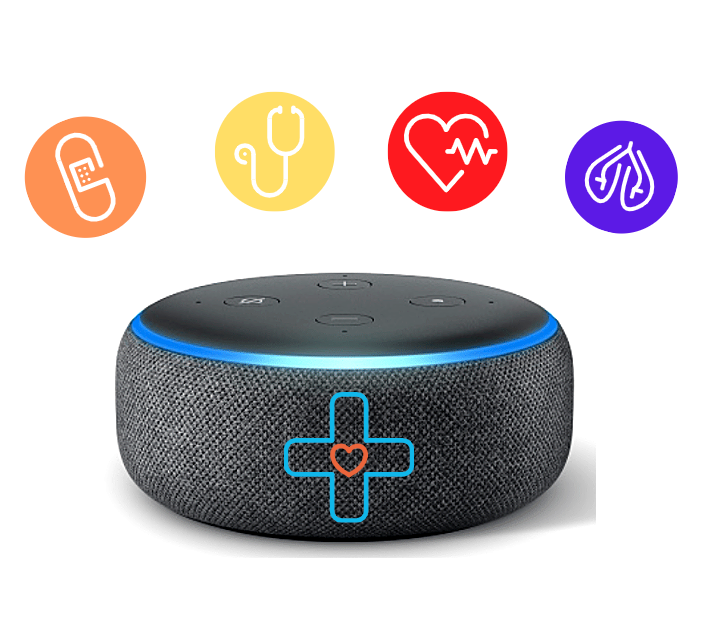“Alexa, Am I Sick?”
By Madeeha Mohiuddin, C2ST Intern, DePaul University
Artificial intelligence, or AI, is powering a variety of systems and consumer products such as self driving cars and smart vacuums. Now, Alexa, which is a popular voice recognition AI technology developed by Amazon, may be utilized in medicine to identify signs of illness.
Big technology companies like Microsoft and Amazon have large ambitions to make the healthcare industry into a more affordable and accessible system. In fact, Microsoft recently announced that they will spend $16 billion to buy Nuance, a leading provider of AI and clinical intelligence for health care providers. Several of Nuance’s products include speech recognition technology that collects and interprets physicians’ audio and records it into the specific file the physician has selected. As a result, physicians spend far less time doing paperwork after patient visits, and have the advantage of spending more quality time with patients.

Imagine a medical Alexa, a device that records patient-physician interactions in order to reduce staff time and expenses. The system could order any necessary tests and handle billing after the physician’s approval. This sounds a little creepy, but this futuristic technology can save the healthcare industry billions of dollars by alleviating administrative duties and allow physicians more time to engage with their patients.
Is this technology capable of diagnosing illness? The answer is, yes! Researchers in China and the US have successfully developed a system that automatically diagnoses common childhood diseases from the flu to meningitis. The system processes a patient’s history, symptoms, lab results and other clinical data in order to detect patterns and identify the disease. Because of this, Google is also developing and testing systems that will flag medical conditions such as diabetes and hypertension.
Emerging medical technology offers hope for improving the quality of care that every person deserves regardless of financial status. By increasing AI technology, hospitals are projected to save $52 billion by the end of 2021 while consumers save $21 billion (ABI Research). Such technology empowers clinical decision-making, ensuring the right interventions are taken, and personalized care from your healthcare provider. In addition to enhanced healthcare, AI will also eliminate costs associated with post-treatment complications and administrative costs from billing. Saving the healthcare industry and patients money, while increasing the quality of care–could AI be the reboot the American healthcare system needs?